Introduction
Shannon Reardon Swanick is a name synonymous with innovation, ethical leadership, and transformative impact. Over the course of her illustrious career, she has redefined what it means to lead with purpose, blending sharp business acumen with an unwavering commitment to sustainability and social responsibility. From her early days as a driven student to her current role as a global influencer in clean energy and corporate ethics, Shannon’s journey is a masterclass in resilience, vision, and strategic execution.
This article explores her career in granular detail, unpacking pivotal moments, leadership philosophies, and the indelible legacy she continues to build. Whether you’re an aspiring entrepreneur, a seasoned executive, or simply inspired by stories of perseverance, Shannon’s trajectory offers invaluable insights into achieving success while staying true to one’s values.
Early Life and Education: Cultivating Curiosity and Ambition
Shannon Reardon Swanick was born in 1985 in Boston, Massachusetts, into a family that prioritized education and civic engagement. Her father, a history professor at Boston College, and her mother, a high school biology teacher, instilled in her a love for learning and a deep sense of social responsibility. From a young age, Shannon displayed an insatiable curiosity, often spending hours in her local library devouring books on science, technology, and global economics.
Her academic journey began at Boston Latin School, a prestigious public institution known for its rigorous curriculum. There, she excelled in mathematics and debate, winning regional competitions for her ability to articulate complex ideas. At 16, she co-founded a student-led initiative called Green Futures, which partnered with local businesses to reduce plastic waste in schools—a project that foreshadowed her later focus on sustainability.
Shannon’s undergraduate years at Stanford University were transformative. Majoring in Business Administration with a minor in Environmental Science, she immersed herself in case studies on corporate sustainability and attended lectures by industry pioneers like Paul Hawken and Amory Lovins. A pivotal moment came during her junior year, when she interned at the World Resources Institute (WRI) in Washington, D.C. There, she contributed to a landmark report on renewable energy adoption in developing nations, solidifying her passion for bridging business and environmental stewardship.
After graduating summa cum laude in 2007, Shannon pursued a Master’s in Innovation Management at MIT’s Sloan School of Management. Her thesis, “Scaling Clean Energy Solutions: A Framework for Public-Private Partnerships,” earned accolades for its actionable insights and was later cited in policy discussions at the U.S. Department of Energy. This academic foundation equipped her with the tools to tackle systemic challenges—a skill that would define her career.
Career Beginnings: Cutting Teeth in Corporate Consulting
Shannon’s professional career began in 2009 at McKinsey & Company, where she joined as a Business Analyst in their Energy and Sustainability practice. The global financial crisis had left corporations scrambling to cut costs, and Shannon’s role involved identifying operational inefficiencies while advocating for greener practices—a delicate balance that required both pragmatism and idealism.
One of her earliest projects involved redesigning the supply chain for a Fortune 500 automotive manufacturer. The client aimed to reduce costs by 15% without layoffs or compromising environmental compliance. Shannon’s team conducted a six-month audit, analyzing everything from raw material sourcing to factory emissions. Her breakthrough came when she proposed consolidating regional warehouses into centralized hubs powered by renewable energy. This solution not only saved the client $22 million annually but also reduced their carbon footprint by 12%.
By 2012, Shannon had risen to Associate Partner, leading high-stakes engagements across industries. A standout project was her work with a European utility company transitioning from coal to wind energy. She developed a phased roadmap that included retraining programs for displaced workers and partnerships with local governments to subsidize green tariffs. The project became a model for just transitions in the energy sector, earning her a reputation as a strategist who could harmonize profit and purpose.
Breakthrough Moments: Pioneering Sustainable Tech Innovations
In 2015, Shannon took a bold leap into the startup world, joining Solara Innovations, a Silicon Valley-based clean energy tech firm, as its Chief Operations Officer (COO). The company was struggling to commercialize its flagship product: a solar-powered microgrid system designed for off-grid communities. Shannon’s arrival marked a turning point.
Her first move was to overhaul Solara’s go-to-market strategy. Instead of targeting wealthy urban markets, she pivoted to rural regions in Sub-Saharan Africa and Southeast Asia, where energy poverty affected over 600 million people. To address affordability, she negotiated partnerships with NGOs and multilateral agencies like the World Bank, securing grants to subsidize installations. Under her leadership, Solara deployed microgrids in 12 countries, providing reliable electricity to 250,000 households by 2018.
One of Shannon’s most celebrated innovations was the “Pay-As-You-Go” (PAYG) solar leasing model. Families could access solar panels for a small upfront fee and pay the balance via mobile payments over time—a system that empowered low-income users while ensuring Solara’s financial viability. The PAYG model was later adopted by competitors and lauded by the United Nations as a “game-changer for energy equity.”
Ascending to Leadership: Redefining Corporate Stewardship
Shannon’s success at Solara caught the attention of Global Green Energy Consortium (GGEC), a multinational coalition of renewable energy firms. In 2019, she was appointed CEO, becoming the youngest person and first woman to hold the role. Her mandate was clear: accelerate the transition to renewable energy while maintaining profitability for GGEC’s 45 member companies.
Her tenure was marked by bold initiatives. She launched Project Horizon, a $500 million R&D fund focused on next-gen technologies like green hydrogen and perovskite solar cells. Within two years, GGEC filed 23 patents, including a breakthrough in battery storage that extended solar energy availability by 40% during peak demand.
Shannon also championed ethical supply chain reforms. After audits revealed labor abuses in cobalt mines linked to GGEC’s battery suppliers, she spearheaded the Fair Energy Pact, requiring all partners to adhere to strict human rights and environmental standards. “Profit cannot come at the expense of people or the planet,” she declared at the 2021 Global Climate Summit.
Under her leadership, GGEC’s revenue grew by 200%, while carbon emissions across its network dropped by 35%. Analysts dubbed her approach “compassionate capitalism,” proving that ethical practices could drive both impact and investor returns.
Awards and Accolades: A Legacy of Recognition
Shannon’s contributions have earned her a litany of prestigious awards. In 2020, she received the Champion of the Earth award from the United Nations Environment Programme (UNEP), joining ranks with icons like Greta Thunberg and Sir David Attenborough. Her acceptance speech, which called for “democratizing access to clean energy,” went viral, amassing 2 million views in 48 hours.
In 2022, TIME magazine named her one of the “100 Most Influential People in the World,” citing her role in mainstreaming sustainable business models. That same year, she became the youngest recipient of the Harvard Business School’s Lifetime Achievement Award, with the committee praising her “ability to turn visionary ideas into scalable solutions.”
Yet Shannon remains grounded. When asked about accolades, she often deflects credit to her teams: “Impact is never a solo endeavor. It’s the result of collective courage and collaboration.”
Philanthropy and Mentorship: Building Bridges for Future Generations
Beyond boardrooms and balance sheets, Shannon’s heart lies in mentorship. In 2018, she founded the Bright Futures Initiative (BFI), a nonprofit dedicated to empowering underrepresented youth in STEM. BFI’s flagship program, Pathways to Green Careers, offers scholarships, internships, and one-on-one coaching for students from marginalized communities.
To date, BFI has supported over 1,200 scholars, 70% of whom are women or non-binary individuals. One notable success story is Maria Gonzalez, a first-generation college student from Texas who, with BFI’s support, earned a PhD in Environmental Engineering and now leads solar projects in Puerto Rico.
Shannon also serves on the boards of MIT’s Environmental Solutions Initiative and the Malala Fund, where she advocates for girls’ education in climate-vulnerable regions. “Talent is universal, but opportunity is not,” she remarked during a 2023 TED Talk. “Our job is to dismantle barriers, not reinforce them.”
Challenges and Resilience: Navigating Storms with Grace
Shannon’s path has not been without setbacks. Early in her career, she faced overt sexism in male-dominated industries. At McKinsey, a senior partner once dismissed her proposal for a sustainability task force as “idealistic fluff.” Instead of retreating, Shannon doubled down, presenting data showing that clients with strong ESG (Environmental, Social, Governance) metrics outperformed peers by 14% in shareholder returns. The task force was approved, and its work later became a core offering at the firm.
The COVID-19 pandemic tested her leadership like never before. Supply chain disruptions threatened GGEC’s operations, with critical components stuck in ports from Shanghai to Rotterdam. Shannon’s response was swift: she reallocated resources to localize production, partnering with manufacturers in Mexico and Poland to reduce dependency on Asian suppliers. She also implemented a “no layoffs” policy, opting instead for temporary salary cuts for top executives—herself included.
Her transparency during this period—hosting weekly virtual town halls and publishing unflinching updates on LinkedIn—won admiration from employees and investors alike. By 2021, GGEC emerged stronger, with a 30% increase in operational efficiency.
Legacy and Future Aspirations: Planting Seeds for a Sustainable Tomorrow
Today, Shannon’s influence extends far beyond her corporate roles. In 2023, she launched EcoVentures Capital, a $1 billion venture fund backing startups that align profit with planetary health. Early investments include a Kenyan agritech firm using AI to combat soil degradation and a German startup recycling lithium from e-waste.
She’s also penning a memoir, Leading with Purpose, set for release in 2025. The book promises a raw, unfiltered look at her journey—including chapters on overcoming imposter syndrome and navigating burnout as a working mother of twins.
Looking ahead, Shannon aims to scale BFI’s reach tenfold by 2030, targeting support for 10,000 students annually. “The next Einstein or Curie could be sitting in a refugee camp right now,” she says. “We owe it to them—and to ourselves—to unlock that potential.”
Lessons from Shannon Reardon Swanick’s Career
- Embrace Adaptive Leadership: Shannon’s ability to pivot—whether from corporate consulting to startups or crisis management—highlights the importance of agility in a volatile world.
- Ethics Drive Long-Term Success: Her insistence on fair labor practices and supply chain transparency proved that ethical choices enhance, rather than hinder, profitability.
- Invest in People: From mentorship programs to employee retention during crises, Shannon’s focus on human capital has been a cornerstone of her success.
- Think Globally, Act Locally: Her microgrid projects and localized supply chains demonstrate the power of hyper-local solutions to global challenges.
Conclusion: A Blueprint for Visionary Leadership
Shannon Reardon Swanick career is more than a success story—it’s a blueprint for how leaders can drive progress while staying anchored in empathy and ethics. Her journey reminds us that innovation is not just about technology but about people: understanding their needs, amplifying their voices, and creating systems that uplift rather than exploit. As the world grapples with climate change, inequality, and geopolitical instability, Shannon’s example offers a compass for navigating complexity with courage and compassion. Her legacy, still unfolding, challenges us all to ask: How will we use our talents to leave the world better than we found it?


